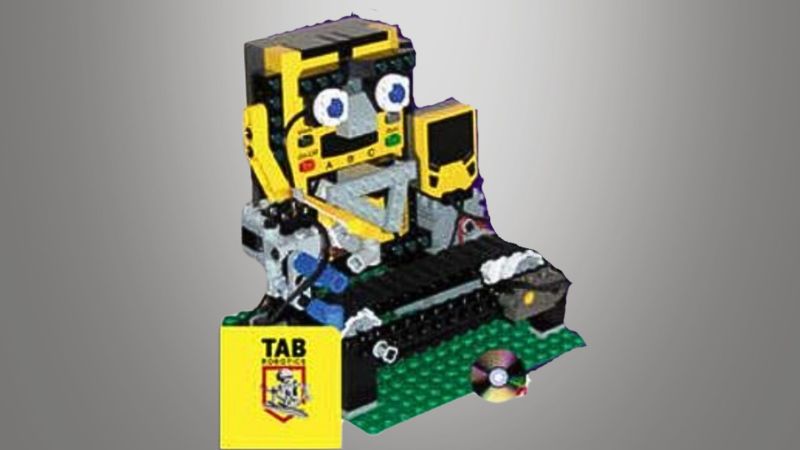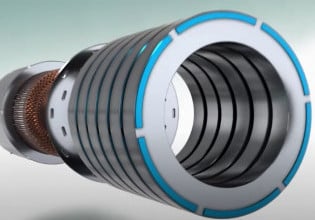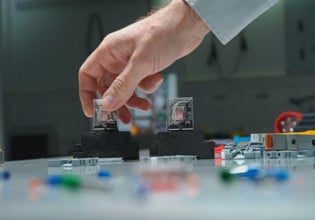Meet Dr. Don: From Electronics to Legos, an Innovator and Creator
Don Wilcher shares some sage advice with EEPower readers on navigating the engineering landscape and becoming a better engineer.
Don Wilcher is an innovator, educator, creator, and man of integrity. I’ve known Don for years and think of him affectionately as “Dr. Don” or “Mr. Don.” The prior comes from the Doctor of Education he earned in 2022. The latter was coined from a cartoon character he created for Lego Mindstorms Interfacing, a book he wrote for children and adults ready to build electronic and software interfaces with Lego Mindstorm.
“Mr. Don,” the character from Lego Mindstorms Interfacing, written by Don Wilcher and published by McGraw-Hill. Image used courtesy of Don Wilcher
Growing up, Dr. Don frequented the library, fascinated with projects in industrial arts and crafts books and often making things like electrical light and fan devices, paper sculptures, wood carvings, and drawings.
“Creativity, problem-solving, and playing with cool electronic components, circuits, and systems” attracted Dr. Don to engineering. “I wanted to work in an R&D lab designing and building sophisticated devices and systems using electronics,” he said.
Electrical Engineering as a Career
However, engineering didn’t occur to him as a career path until working on an Associate of Applied Science degree in Electrical-Electronics Technology at Henry Ford Community College in Dearborn, Michigan.
“While having lunch in the student cafeteria, I was explaining to a friend about wanting to design electronic circuits and devices,” Wilcher explained. “This student, who was an Electrical Engineering major, stated that pursuing an engineering degree will allow you to learn how to design such circuits and devices. It was at that point that I decided to major in Electrical Engineering.”
Mathematical Challenges
Since then, Dr. Don’s resume has become a veritable alphabet soup of credentials (Ed.D, MSEIT, EE, CETa), undeterred by challenges (like math) that plagued him in his younger years.
“Mathematics was quite a challenge for me. Learning intermediate algebra in college did not register. The practice of both sides of the equation equaling each other and how to solve for variables in technical math courses just was not clicking,” he recalled. “Then, one day in technical math II, I saw the instructor set up a problem to solve for the variable x. All the confusion and frustrations in solving for x miraculously became clear. It was at that point mathematics made sense to me. I became intrigued by learning calculus, laplace transforms, integrals, and differential mathematics.”
Dr. Don has some good advice for other budding engineers struggling with math: turn problem-solving into a game.
“I viewed setting up the equations using algebra, expanding the problem, then reducing as solving for clues to discover the mystery, in the case of the unknown variable,” he explained. “Such a mindset and practice allowed me to overcome my dislike of mathematics. I realized that mathematics is a powerful language and tool that aids the engineer or scientist in making new discoveries. Solving engineering problems is a joy due to the use of mathematics to analyze complex circuits and mechatronics systems aided by the Python programming language.”
A Man of Integrity
Dr. Don has held strongly to the belief that he can be dedicated to the field of electronics while not compromising his integrity and has accomplished this by being driven by evidence rather than emotion.
“I am very evidence-based and less emotionally reactive. I always believe that integrity supported by evidence is the best route and approach to take when introducing new concept designs and innovation,” he explained.
Don Wilcher (“Dr. Don”).
Throughout his career, Dr. Don has been guided by Forrest Mims, intrigued by the Engineering Notebooks and project articles Mims wrote for Radio Shack and Popular Electronics magazines.
“It was his curiosity, commitment to details, and passion for electronics that inspired my work as a book author, technical/engineering educator, electrical engineer, and technical project writer,” Wilcher shared.
In fact, Mims has written two prefaces for Wilcher’s books, and they keep in close contact.
Engineering Advice
Black students and engineers today face many challenges, including equal access to education and technology and representation within academic institutions and corporate America.
“Multiple representation from an educational lens is a powerful tool to inspire learners of all ethnic, social, gender, and religious backgrounds. Having a culturally diverse learning environment will allow black engineering students to realize their talents, skills, and future contributions to society,” Wilcher said.
For black engineering students navigating today’s landscape, Dr. Don says, "remember the ancestors that gave their lives and become pioneers in your chosen career pathway. Knowledge, belief in self, and being committed to one’s craft and profession will aid in navigating today’s socioeconomic landscape.”
Whether engineers are seasoned or new in the field, Dr. Don has sage advice: become makers, not just consumers.
“Learn how to make devices and systems by practicing bricolage (taking discarded objects and transforming them into new and usable items),” Wilcher advised. “Continue to learn from diverse perspectives and use the knowledge and skills of engineering to make the world a better place.”



_.jpg)




